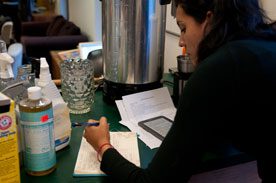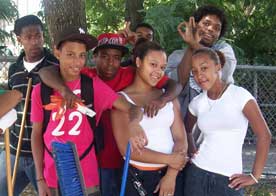Spreading the Model
Throughout our co-op development work, we have observed a great deal of enthusiasm for our cooperative models from organizations and groups working with immigrant populations in economically disadvantaged neighborhoods. Many of these groups are looking for ways to work with immigrant communities to generate good, stable jobs through entrepreneurship. This enthusiastic response is due primarily to the significant impact that this model can have on the economic development of communities that are often lacking high-quality employment opportunities.
Based on our experiences, CFL believes that any model for creating co-ops for immigrants should have the following characteristics: social group work, emphasis on effective communication styles and techniques, flexibility with scheduling, childcare and translation, modeling, and possibly incubation assistance for hands-on co-op development. We work with the NYC Network of Worker Cooperatives and have launched the NYC Co-op Development Initiative to train other organizations to be co-op incubators.
It takes work and resources. A community-based organization considering launching co-ops should expect to need a full time co-op coordinator, with a supervisor and back office manager, as well as physical space for the co-op to be, full buy-in from the whole board and staff, and the ability to provide financial support for the first couple years. Although the skills of social work are crucial in helping with group dynamics and training, it is really helpful if the parent organization has social and economic justice in its mission and not just social services, because such an organization is more likely to relate to its clients as partners rather than just service recipients.
But it’s worth it. The model’s success can be exemplified by the difference Sí Se Puede! made for Cristina. Before joining the co-op Cristina told The Brooklyn Rail that she “was making around $400 a week for 60 hours of work and was paying $120 a week for babysitting.” This left her $280. “Now, thanks to the co-op, I have jobs that take me 3 to 5 hours to complete,” Cristina says, “and I make the same amount I used to make for 12 hours of work. I can also control my hours, which has been the biggest benefit, especially now that I have two children. Plus, I’ve gotten so much help from other co-op members. I don’t have any family in the United States, so the other co-op members have become my family.”
A version of this article was first published in
Grassroots Economic Organizing Newsletter in 2011





Comments